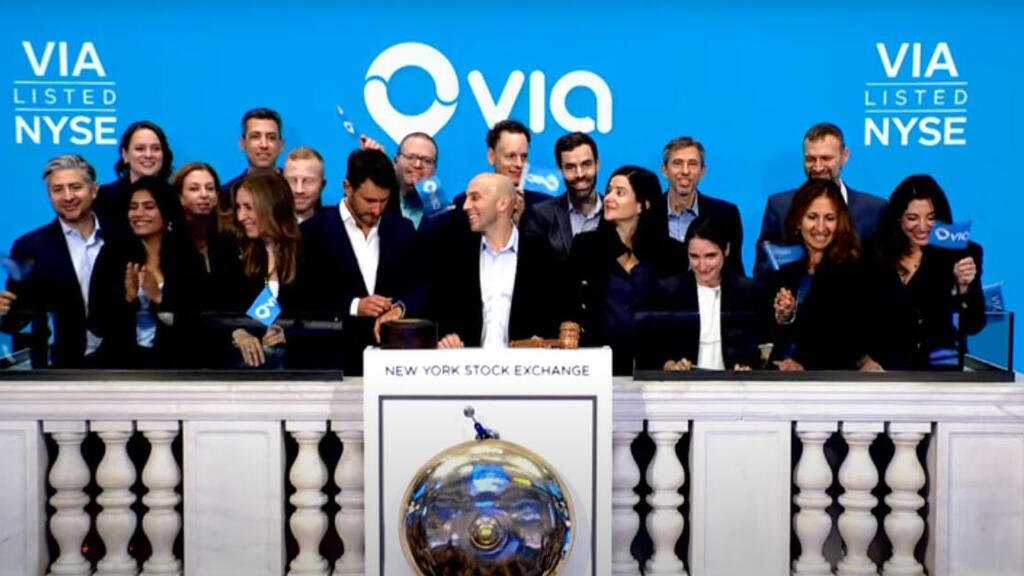
From Klarna to Via: Tech IPOs signal a shift after years of decline
With Klarna’s $20 billion surge, Gemini’s debut rally, and Via’s $493 million raise, Wall Street records its busiest IPO week since 2021, hinting at a long-awaited turnaround.
The all-time record at which the Nasdaq closed the trading week is widening the window for IPOs in the technology sector. Although investors are mainly focused on fintech listings, such as Klarna, which finally went public last week at a $15 billion valuation and surged to $20 billion, or the Winklevoss brothers’ crypto exchange Gemini, which jumped 45% on its first day of trading, attention is also spreading to other types of companies.
Israeli company Via, which developed public transportation management software, raised $493 million on Thursday night at a valuation of $3.7 billion. That made the past week the busiest for IPOs since 2021, with $4 billion raised by just six companies. Still, the broader statistics remain less encouraging: only 122 technology companies went public in the first half of 2025, roughly the same as in 2024. Expectations are now that the second half will improve and break the downward trend seen since 2021, when a record 734 new companies launched IPOs, according to CB Insights data.
Tech firms are also coming to the market “older” than ever. In 2015, companies averaged 12 years before going public; this year, the average age is nearly 16. All of last week’s IPOs reflect this trend: Sweden’s Klarna is 20 years old, Gemini was founded in 2014, and Via has waited since 2012 to reach Wall Street. Over the weekend, another 10-year-old Israeli-founded firm, Lendbuzz, filed for a Nasdaq IPO at a targeted valuation of $1.5 billion.
In the shadow of Klarna and especially Gemini, Via attracted less attention on its first day of trading Friday, providing little of the “pop” that investors like to see. Toward the end of the session, however, its shares climbed 8%, lifting its market value to $3.9 billion.
Via raised its share price above the initial range of $40–44 to $46, allowing it to add $328 million to its balance sheet and another $164 million to the accounts of longtime shareholders, led by founder and CEO Daniel Ramot. Ramot (49) sold half a million shares for $23 million. Pitango, led by Chemi Peres and one of Via’s earliest backers, also sold nearly $20 million worth of stock. Other large shareholders include 83North and Exor.
Among Via’s backers are two Israeli firms outside the VC sphere: insurer Menora, which holds 1.4% of the company, and auto importer Colmobil, which owns 1% and sold small stakes in the IPO. Founded in 2012 by Ramot and Oren Shoval, Via has raised $900 million to date. The company is registered in the U.S. and employs nearly 1,000 people, including 400 at its Israeli R&D center.
Via is growing rapidly, over 30% annually, with revenue reaching $429 million, though it remains unprofitable. Its losses, however, are narrowing. The firm’s customer base includes 689 agencies and local authorities, with 90% of its revenue derived from government contracts, mostly in the U.S.
“This is a very exciting and significant day in the life of the company,” Ramot told Calcalist after the IPO. “We started talking to investors a few months ago, and it’s not something they were familiar with. There are no companies like us, neither in terms of the market we serve nor the technology we’ve built. But in the end, we did it successfully.”
Related articles:
Ramot said the timing reflected a unique “window” in the market. “Investors see that we can grow consistently over time and have strong product-market fit. In addition, because we provide critical infrastructure to public organizations, being a public company reassures our customers. Just as Fortune 500 firms prefer buying cybersecurity from public companies, so do the organizations we work with.”
Via is also considering acquisitions using proceeds from the IPO and stock as currency.
The next Israeli company expected to list is fintech player Lendbuzz, founded by Amitay Kalmar and Dan Raviv. Smaller than Via but operating in the hot AI-driven fintech space, Lendbuzz grew revenues 38% in the first half of 2025 to $173 million and posted $11.1 million in net profit, nearly double last year’s $5.6 million.
Lendbuzz has raised $345 million to date, including $45 million in equity at a $1.1 billion valuation in 2023. Investors include 83North, Eyal Ofer’s O.G. Venture Partners, Arkin Group, Mivtach Shamir, and Highsage Venture. According to Mivtach Shamir’s latest report, its early 10% stake has fallen to about 3%, valuing the firm near $1.5 billion, the target also set for the IPO.